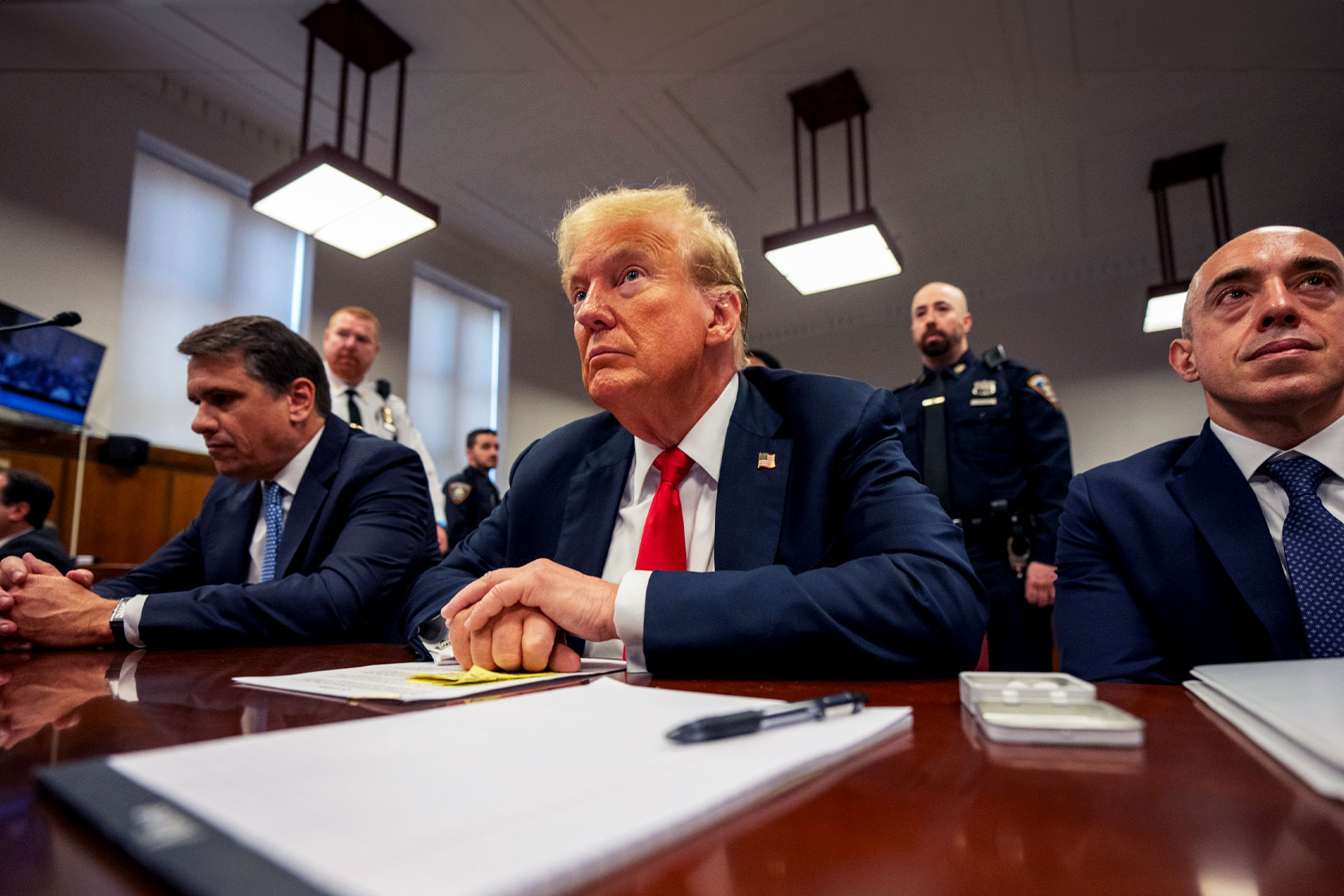Donald Trump was the first U.S. president to ever be charged with a crime after leaving office. Now, he is also the first to be convicted.
On Thursday, after six weeks of testimony from some 22 witnesses and two days of deliberation, 12 jurors entered a midtown Manhattan courtroom and found Trump guilty on all 34 felony counts of falsifying business records that he faced. It's now up to Judge Juan Merchan to sentence Trump, who faces the prospect of not only fines but also time behind bars.
Whether or not Trump is ultimately hit with a fine or prison time, it's a stunning development that threatens to upend the 2024 presidential election. Polling has previously suggested that at least a few Trump supporters might think twice if he were convicted of crimes. A new survey from Marist, released earlier on Thursday, found that 17% of registered voters said they would be "less likely" to vote for Trump if he is convicted. (On the other hand, 15% said they would be "more likely.")
Of all the criminal cases against Trump, the Manhattan hush-money case wasn't the one that the ex-president's critics wanted or expected to go first. It has nothing to do with Trump's alleged incitement of a mob to storm the U.S. Capitol in an effort to overturn the 2020 election, nor with Trump's alleged refusal to return top-secret and classified national security documents that he took to Mar-a-Lago after leaving office. Trump was a candidate for president, and effectively a private citizen, when the crimes in this case were committed.
Even Manhattan District Attorney Alvin Bragg was at one point skeptical about the prospect of bringing charges against Trump. Prosecutors had to show not only that Trump had approved of the hush money scheme but also convince jurors that he did so in service of another crime, such as evading taxes or campaign finance laws.
At the same time, the lurid details of the case were striking: It featured the dominant figure in the Republican Party, who is about to become its presidential nominee for the third time, allegedly flouting the "family values" that his party has often claimed to represent. Trump allegedly had sex with adult-film actress Stormy Daniels, under circumstances Daniels described as coercive, and seemed more concerned with keeping that information away from voters than from his wife.
"Don't worry. How long do you think I'll be on the market for?" That's how Michael Cohen, who spent a decade working as Trump's personal attorney, described his boss' reaction to speculation that Daniels' story could come out.
We need your help to stay independent
Cohen said that, at Trump's request, he tried to hold off on paying Daniels until after the 2016 election — because at that point, no one would care. Hope Hicks, a longtime loyal aide to Trump, likewise testified about Trump's relief when another woman who was reportedly paid off, former Playboy model Karen McDougal, only went public after he was in the White House, suggesting to Hicks, as she recalled it, "that it would have been bad to have that story come out before the election."
In his closing arguments, defense lawyer Todd Blanche stuck with his client's assertions that he never had sex with Stormy Daniels and never repaid Cohen for buying her silence. Despite prosecutors introducing an invoice showing that Cohen had paid Daniels' lawyer — with handwritten notes from former Trump Organization CFO Allen Weisselberg detailing how Cohen would be reimbursed — Blanche insisted that the former president's fixer at the time was only paid for his legal work, pursuant to a retainer that was never documented.
Trump's defenders and lawyers hoped that confusing set of facts, coupled with the fact that Michael Cohen is himself a convicted felon who admitted lying to the government, might lead to an acquittal on some charges, or at least to a mistrial. But ultimately, not even one juror thought that argument had merit — nor expressed any reasonable doubt that Donald Trump was guilty.
Read more
about Trump's legal battles

